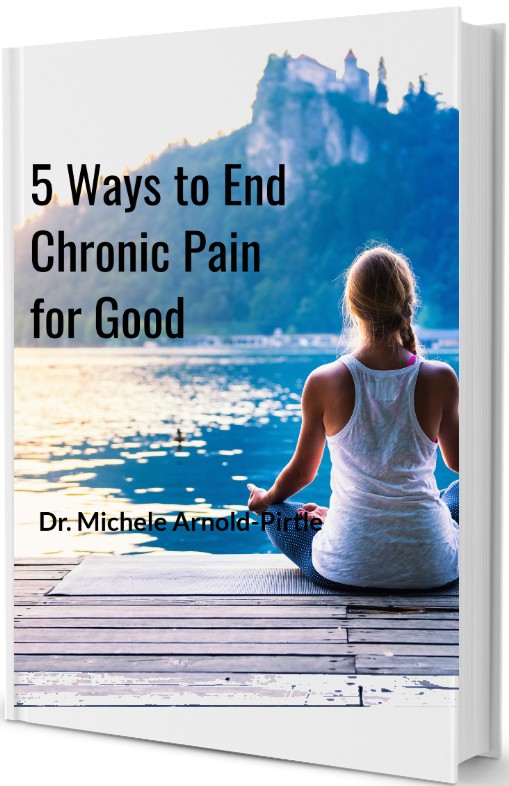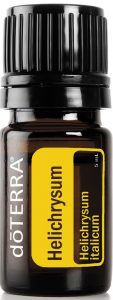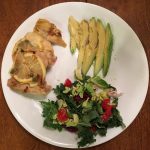-
- Take your health to the next level. Subscribe to our mailing list for your FREE eBook.“5 Ways to End Chronic Pain for Good!”

-
Latest Articles:
- • Add These 10 Immune-Boosting Foods to Your Fall Diet •
- • Keep Your Skin Healthy and Glowing with these Fall Skincare Tips •
- • Beat End of Year Burnout with these Fall Self-Care Rituals •
Hours
Monday8:30am - 4:30pmTuesday8:30am-4:30pmWednesday8:30am-4:30pmThursday8:30am-4:30pm
- Testimonials
“Dr Michele knows how to diagnose and heal you. She has a variety of methods she can utilize to work with your mind and body to produce the healthiest you!”
~ Carol Prokop. Also posted on Google Reviews!
I needed relief from chronic pain in my back, hips, and sciatic nerve. I have had these problems for a number of years. My doctors used physical therapy, and pain medication. I can no longer take anti-inflammatory medication. My acupuncture treatments have helped a lot. I can now relax, and I feel almost pain free. It has helped my attitude also. My activities have improved. Michele is a wonderful person, caring, compassionate, and an excellent acupuncture therapist!
C.T.
After two back surgeries, I was still having a great deal of pain. A friend told me acupuncture helped him with shoulder pain. I was a little skeptical but decided to give it a try. I didn’t want to stay on Percocet pain killers forever. After receiving acupuncture treatments, I was amazed how it helped with the pain. It isn’t gone but it is at least bearable. I only occasionally need to take a pain killer, and that is when
... Read more »A letter as copied to her doctor: Ms. Michele Arnold has been working with me since I begun experiencing hot flashes and has been able to manage them for me. I know it works because I took a five week hiatus from acupuncture treatments and experienced hot flashes so severe that I actually did not want to live. With four treatments I was back to feeling great with only a very occasional minimal hot flash. Acupuncture is relaxing and uplifting.
... Read more »Acupuncture has helped relieve so many symptoms, its hard to list them all. I have MS (multiple sclerosis) and acupuncture has helped with my vision, balance, and overall energy level. It also completely addressed the pain from a torn shoulder rotator cuff. Thank you Michele!
Wendy Harrison
Health
Natural Screen for Summer
Be ready with a natural sunscreen that doesn’t contain any harsh ingredients. First, here is some information you may need to know.
There are two types of UV (ultraviolet) rays from the sun: UVA and UVB.
UVA rays are primarily responsible for skin damage from excessive sun exposure that can lead to cancer and skin aging.
However, although UVB rays can also cause damage and sunburn, they are necessary for your body to produce its own cancer protective vitamin D via the skin.
Sunlight is by far the optimal way to produce your vitamin D. Blocking UVB rays may inadvertently be increasing your cancer risk by blocking vitamin D absorption. Plus, sunscreen causes cancer through carcinogenic ingredients and SPF protects only against UVB rays.
Extra Virgin Coconut oil has an spf of 10, and blocks 90% of UVB Rays, thus providing 90% of its Vitamin D synthesizing abilities.
So, now are you ready for my recipe that I use for a natural sunblock?
1/2 C olive oil
1/4 Cup extra virgin coconut oil
2 Tbsp. cocoa butter
2Tbsp. Zinc oxide
Essential Oils: 12 drops helichrysum, 3 drops arborvitae, 10 drops lavender, 5 drops melaleuca.
Place all ingredients, except the zinc oxide and essential oils, into a double boiler or water bath on the stove top.
Heat and mix gently, stirring together all ingredients as they melt. Once melted and mixed together, remove from heat then add zinc oxide and essential oils. Mix together. Let cool completely. Pour into a clean glass jar, and store in a cool place.
Apply to your skin before going out into the sun, and reapply every hour during your time outdoors. Don’t forget to reapply after a swim.
Care should always be taken when sunbathing to avoid a sunburn. If you burn easily, know your threshold for time in the sun before burning.
Olive oil has one of the highest ratings for ultraviolet radiation absorption, but is not a sunblock. The zinc oxide is added to provide further sunblock.
It’s also a good idea to wear sunglasses, a hat, and avoid direct sunlight during the middle of the day. This is from about 10 am to 3 pm.
Remember that citrus oils such as lemon, wild orange, lime, or bergamot may increase photo-sensitivity. Therefore, don’t apply these oils to the skin at least 24 hours before going out into the sun.
Happy Oiling!
Enjoy from Dr. Michele
Learn more about doTERRA Oils Click Here 
Disclaimer: This information has not been evaluated by the FDA. The products and methods recommended are not intended to treat, diagnose, cure, or prevent illness or disease. Please consult with a licensed health professional to address specific health concerns you might have.
References
Kaur, Chanchal Deep, and Swarnlata Saraf. “In Vitro Sun Protection Factor Determination of Herbal Oils Used in Cosmetics.” Pharmacognosy Research 2.1 (2010): 22–25. PMC. Web. 10 June 2017. Retrieved from: https://www.ncbi.nlm.nih.gov/pmc/articles/PMC3140123/
Korać, Radava R., and Kapil M. Khambholja. “Potential of Herbs in Skin Protection from Ultraviolet Radiation.” Pharmacognosy Reviews 5.10 (2011): 164–173. PMC. Web. 10 June 2017. Retrieved from https://www.ncbi.nlm.nih.gov/pmc/articles/PMC3263051/
What Should I Eat to be Healthy
What to eat and what not to Eat: The Chinese Medicine Way to Healthy, Enjoyable Eating.

What should I eat to be healthy? That is a question I believe a lot of people are asking these days. If you are noticing signs of aging, are overweight, are considered obese, underweight, have diabetes, heart disease, auto-immune disorder, cancer, or you just plain want to stay healthy, you might be wondering which diet therapy is best for you.
I believe that a whole foods diet based mostly on plants, while taking into account individual needs, without all the processed foods, is the way to go. This is not a new way of eating, rather it is based on ancient Chinese Medical philosophy. The ancient way to eat for modern people.
In addition, mindfulness while eating plays an important part. One should eat in a calm and relaxed manner without rushing. Avoid stressful interactions during a meal, including television and reading. Be sure to always chew food thoroughly. Avoid overeating, or excessive fasting.
Foods to avoid are excessive raw, cold foods, iced drinks, excessive dairy, oily, greasy, fried foods, refined sugar, processed white flour products, excessive meat consumption, and excessive alcohol intake.
The process of digestion, and general nutritional requirements are the same, thus there are general guidelines to follow for a healthy spleen-Qi (chi)-digestive system. However, some people may have slightly different needs depending on their body type, lifestyle, climate, culture, or pattern of disharmony.
The general guidelines for a healthy spleen-Qi digestion will be explained in the next post. Stay tuned…
Fighting Flu Season with Acupuncture
 While the flu is actually not a season, we have become programmed to think of it as the months of November through March. On average, the flu hospitalizes thousands every year, especially the young and elderly. There are also a number of deaths related to the flu, mostly due to people already having compromised immune systems.
While the flu is actually not a season, we have become programmed to think of it as the months of November through March. On average, the flu hospitalizes thousands every year, especially the young and elderly. There are also a number of deaths related to the flu, mostly due to people already having compromised immune systems.
The flu, also known as influenza, is a highly contagious respiratory infection that is caused by a number of viruses. To date, there are approximately 26 to 30 different known strains of the flu virus. This is one of the reasons the flu vaccine has only mild efficacy. The flu vaccine itself, typically only covers five to seven strains of the flu. Symptoms of the flu include fever, coughing, a sore throat, fatigue, muscle aches, pains, runny nose and watery eyes. continue reading
Nutrition for Heart Health OM Nutrition & Hypertension
 Oriental medicine (OM) nutrition combines ancient wisdom with modern science. OM nutrition is a holistic approach, which aims to balance all five flavors within most meals with one or two flavors being emphasized for therapeutic purposes. OM nutrition for a hypertension emphasizes bitter flavors, sour flavors and energetically-cooling foods.
Oriental medicine (OM) nutrition combines ancient wisdom with modern science. OM nutrition is a holistic approach, which aims to balance all five flavors within most meals with one or two flavors being emphasized for therapeutic purposes. OM nutrition for a hypertension emphasizes bitter flavors, sour flavors and energetically-cooling foods.
OM theory states the bitter flavor benefits the heart in moderation but an excess is harmful as it has a drying effect; for example, coffee is bitter. In moderation coffee acts as vasodilator increasing circulation but in excess it can raise blood pressure and has a diuretic effect. Modern scientific research has discovered while the human genome has 25 bitter taste receptors 12 of these are expressed in the human heart. continue reading
7 Ways to Communicate Healthy Habits to Your Kids

As the school year kicks back into gear so should the healthy habits that you and your children have before practiced. Notice how I said “practiced,” because we all know during the summer-vacation months we tend to indulge a little. Maybe you have had one too many backyard barbecues, or three too many trips to the favorite ice cream shop down the street. Whatever your summer vice may be don’t worry about it, you can regain those healthy habits from before and introduce them into your children’s lives! continue reading

